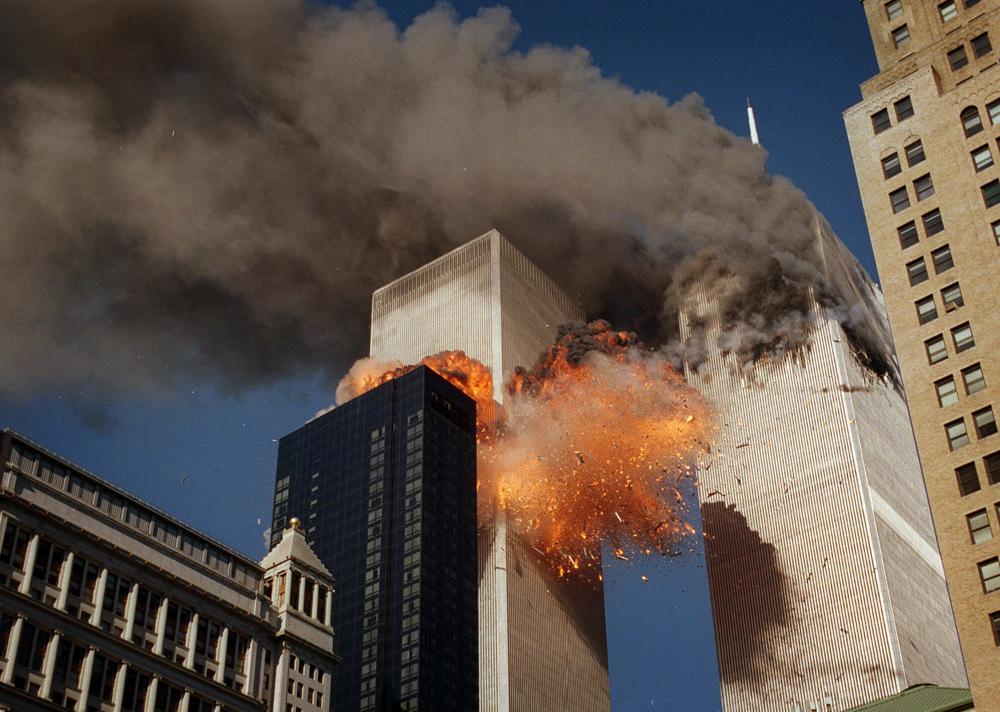Prince Harry declares US home, renounces British residency
Prince Harry officially makes the United States his primary residence, renouncing ties to the UK royal family in a significant move.
The U.S. marks the milestone anniversary Saturday under the pall of a pandemic and in the shadow of a frantic withdrawal from Afghanistan.

Smoke billows from one of the towers of the World Trade Center as flames and debris explode from the second tower, Tuesday, Sept. 11, 2001.
Twenty years ago, the 11th of September dawned as just a date. By midnight, it was 9/11, the staggering starting point for a new era of terror, war, politics, patriotism, and tragedy.
The U.S. marks the milestone anniversary Saturday under the pall of a pandemic and in the shadow of a frantic withdrawal from Afghanistan, which fell to the same militant rulers who gave safe haven to the plotters of the 2001 attacks.
“It’s hard because you hoped that this would just be a different time and a different world. But sometimes history starts to repeat itself and not in the best of ways,” said Thea Trinidad, who lost her father in the attacks and has signed up to read victims’ names at the ceremony at ground zero in New York.
Advertisement
President Joe Biden is scheduled to travel all three attack sites: New York’s World Trade Center, the Pentagon and a field near Shanksville, Pennsylvania.
In a video released Friday night, he mourned the ongoing losses of 9/11.
“Children have grown up without parents, and parents have suffered without children,” said Biden, a childhood friend of the father of a Sept. 11 victim, Davis Grier Sezna Jr.
But the president also spotlighted what he called the “central lesson” of Sept. 11: “that at our most vulnerable … unity is our greatest strength.”
Former President George W. Bush, the nation’s leader on 9/11, is due at the Pennsylvania memorial and his successor, Barack Obama, at ground zero. The only other post-9/11 U.S. president, Donald Trump, is planning to be in New York, in addition to providing commentary at a boxing match in Florida in the evening.
Other observances — from a wreath-laying in Portland, Maine, to a fire engine parade in Guam — are planned across a country now full of 9/11 plaques, statues, and commemorative gardens.
Using hijacked planes as missiles, the assailants inflicted the deadliest terrorist attacks on U.S. soil, taking nearly 3,000 lives, toppling the twin towers, and ushering in an age of fear.
Security was redefined, with changes to airport checkpoints, police practices, and the government’s surveillance powers. In the years that followed, virtually any sizeable explosion, crash, or act of violence seemed to raise a dire question: “Is it terrorism?” Some ideological violence and plots did follow, though federal officials the public have lately become increasingly concerned with threats from domestic extremists after years of focusing on international terror groups in the wake of 9/11.
New York faced questions early on about whether it could ever recover from the blow to its financial hub and restore a feeling of safety among the crowds and skyscrapers. New Yorkers ultimately rebuilt a more populous city to have reckoned with the tactics of an empowered post-9/11 police department and a widened gap between haves and have-nots.
Advertisement